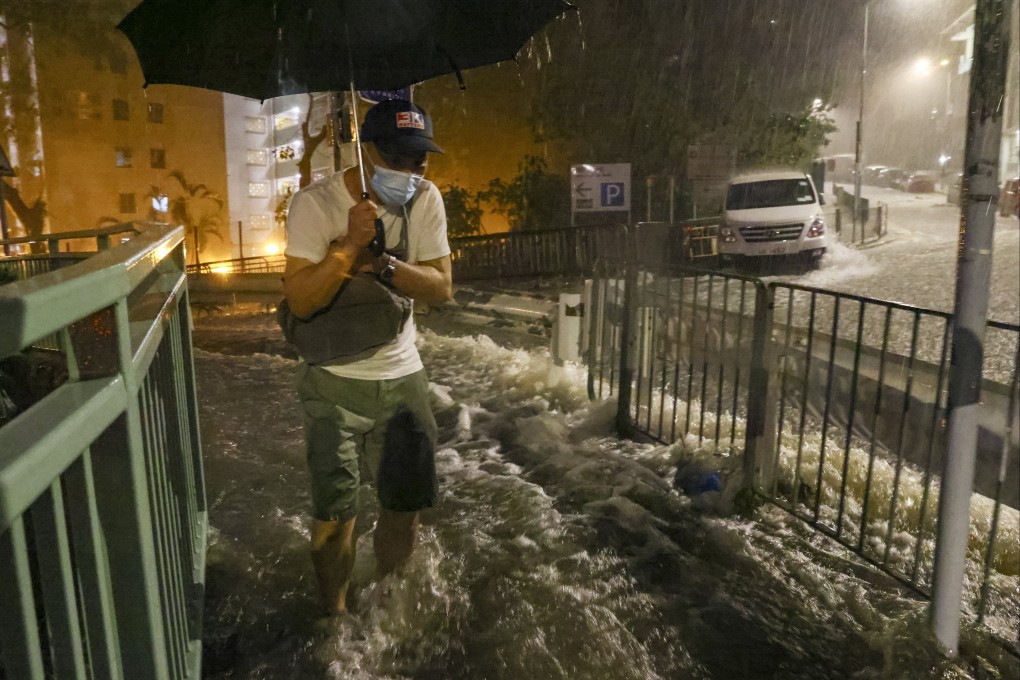Letters | Floods in Hong Kong show preparations for climate change must start now
- Readers discuss the importance of boosting disaster risk management systems, and the reaction on the mainland to Japan’s release of waste from the Fukushima nuclear power plant

Many services were halted as roads, tunnels and railway stations were flooded. Hong Kong should enhance its disaster risk management system for extreme weather events.
Climate change is increasing the intensity and frequency of rainfall, according to the Intergovernmental Panel on Climate Change. Hong Kong may face even more severe and frequent rainfall in the near future.
Disaster risk management systems essentially aim to avoid or decrease the risks of new disasters, strengthen resilience to existing disasters and handle recovery measures after disasters occur. Some examples of disaster risk management efforts are refining the early disaster warning system, expanding drainage capacity to combat flash floods, and raising public awareness of disaster threats or response actions.
Improved disaster risk management policies and strategies would not only reduce risks to safety but also limit socioeconomic losses.